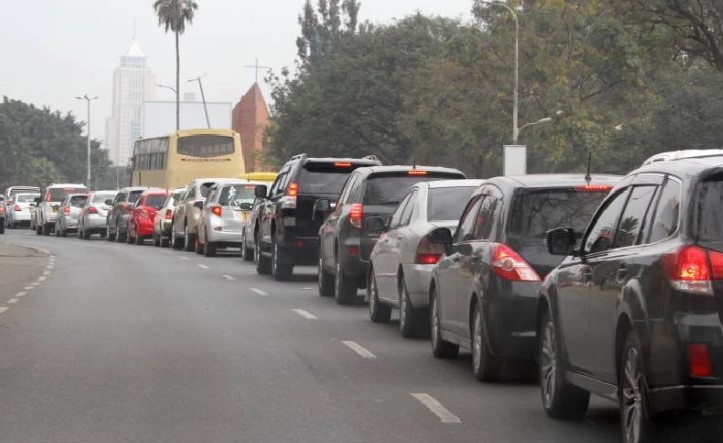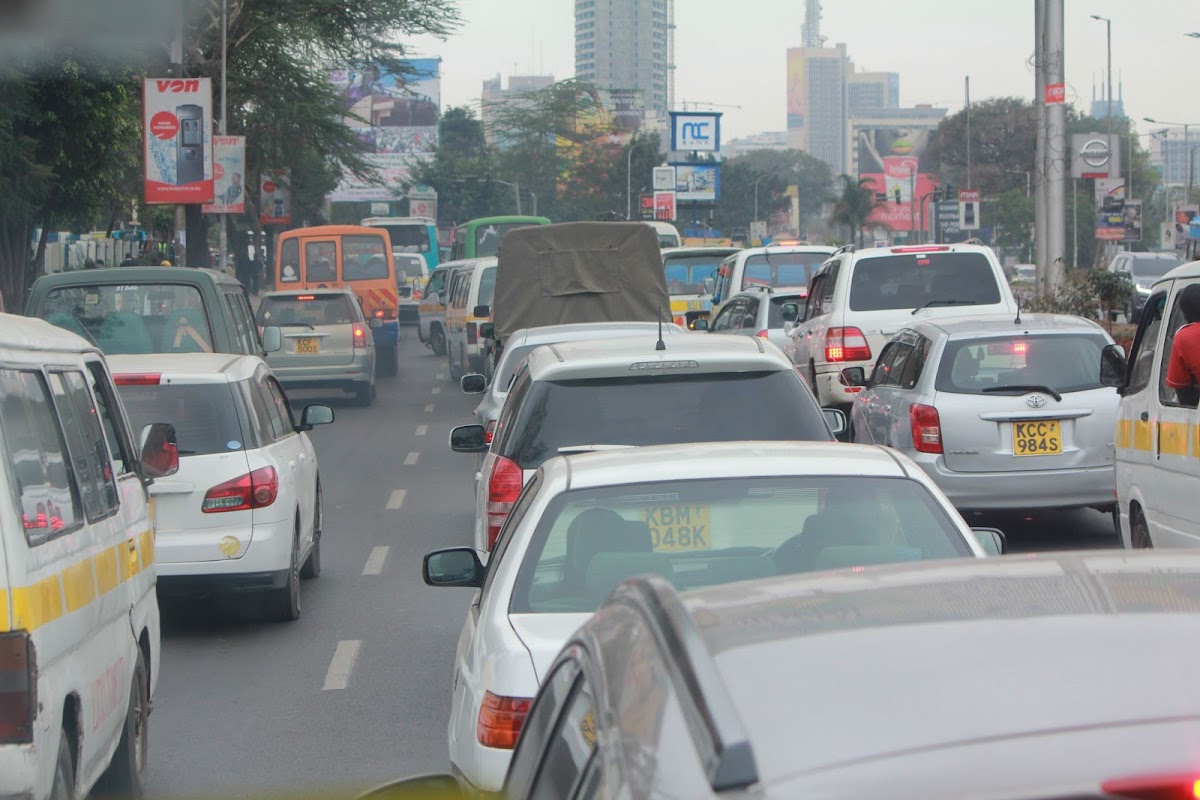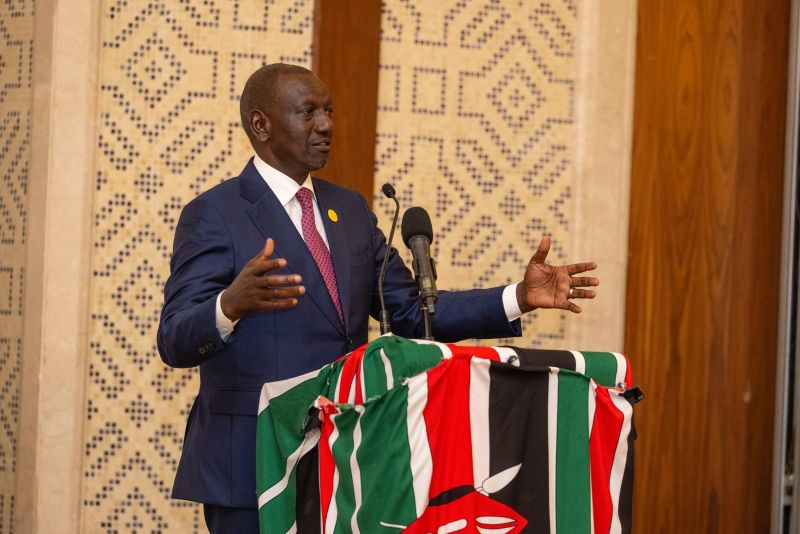How rogue digital taxi drivers are robbing passengers through dirty tricks

Some tamper with car locks, making it impossible for the passengers to alight unless they open the doors for them.
Lavender Kavagi, a 20-year-old university student, booked a taxi ride through an online taxi-hailing app from the Nairobi CBD to Westlands. She was supposed to pay Sh230 as reflected on the app for the approximately six-kilometre trip. But to her shock, the driver called her and requested her to add at least Sh200.
“The call was not what I expected after countless trips with online taxis for three years. I found it odd starting to negotiate the price when it was clear what I was supposed to pay,” said Kavagi.
More To Read
- Before you turn the key: What every car renter should know
- Mounting violence in South Africa's Cape Town prompts closure of taxi routes
- Study finds Bolt’s top 50 drivers earn over Sh200,000 monthly
- Rwanda set to launch Africa’s first self-flying taxi
- Cab drivers are fully compensated on discounted rides, don't pay more - Bolt
- Road carnage: Murkomen orders re-testing of PSV drivers, return of NTSA inspections
The ordeal was the same when she made a second order with the same company. The driver called and wanted to be paid extra fare too. Because she was running out of time, she agreed to add Sh100 to the price indicated on the app.
The trend of taxi drivers demanding higher fares than those set by ride-hailing companies has become common lately. Some call their clients and start negotiating the fares before a trip starts.
Others have devised ways of tampering with car locks, making it impossible for the passengers to alight unless they open the doors for them. This trick is meant to ensure that their clients pay the amount charged by the driver, beyond what an app indicates. It has led to incidents where passengers are locked in cars for declining to pay the extra charge, insisting on paying what the taxi-hailing app indicates.
This inconveniencing trend is slowly spreading across all online-hailing cabs operating in Kenya.
On one of his numerous taxi journeys, Tony John from Mathare in Nairobi was shocked after he was asked to pay more than the price indicated when he booked the trip. This happened mid-trip.
“After ordering a cab, I paid the Sh260 before boarding the taxi. Upon reaching Mlango Kubwa, the driver demanded more cash. He claimed he wasn’t aware of the exact distance we were to cover. I had to add a hundred shillings because I feared for my safety, being dropped in some unfamiliar place,” John said.
What shocked him was the driver’s claims that he was not aware of the exact distance of the journey yet he accepted the order which shows the trip’s details.
Upon reaching his final destination in Huruma, John said the situation escalated. The driver demanded more money, insisting the journey was long. As he was about to alight, he faced more shock — he could not open the door; only the driver could do it.
“I had to add another one hundred shillings to secure my freedom,” John said.
 Motorists at a traffic snarl-up along a section of Uhuru Highway. (Photo: Courtesy)
Motorists at a traffic snarl-up along a section of Uhuru Highway. (Photo: Courtesy)Motorists at a traffic snarl-up along a section of Uhuru Highway. (Photo: Courtesy)
For a trip that was to cost him Sh260, he ended up paying Sh460.
Even though he felt aggrieved, John decided not to seek legal redress, which he felt would take long to conclude and would interfere with his busy work schedule.
Recently in Eastleigh, a woman was locked inside a Bolt taxi for failing to pay more than what was indicated on the app when she booked the ride. The public came to her rescue after a confrontation with the driver attracted people to the car.
Other Topics To Read
A taxi driver who sought anonymity confessed to using dirty tricks to get extra money from unsuspecting clients. She revealed that she uses the longest route to reach a passenger’s destination to charge more than would be necessary.
“Sometimes a driver can use an alternative longer route to reach the destination. This is a way of robbing a client softly,” the driver revealed.
Lately, once you board some of these taxis, you are likely to find a fare adjustment notice hung behind the driver's seat. For instance, the drivers have set the minimum amount charged per ride to be Sh300 while for any ride above this amount or covering more than three kilometres, a driver charges 1.5 per cent more on the set amount.
Kenyans have condemned the drivers who use online platforms to attract customers and then pull tricks on them to ensure they pay more.
Posting on X, Muhia Mungai, while agreeing that the fares charged by digital ride-hailing companies are relatively low, the trend by the taxi drivers of shoving down the price woes to clients without their knowledge is unprofessional.
“I can add or tip (a driver) depending on the distance because sometimes the fare on the app is low. The problem is when the driver demands it. If the driver negotiates politely and uses the right language I understand he or she is in business and I will also negotiate,” Munga said.
Peter, not his real name, is a driver with one of these companies. He said lately, clients' priorities have shifted from just prices to safety. Many often inquire if the child locks are enabled, fearing being trapped inside for failing to reach an agreement with a driver.
Though not taxi drivers apply dirty tricks, digital taxi users believe measures have to be initiated to ensure passenger safety.
 Motorists manoeuvre along Mombasa Road.(Photo: Handout)
Motorists manoeuvre along Mombasa Road.(Photo: Handout)
Requesting additional payment beyond what is displayed on the app goes against the guidelines of these taxi-hailing services. Some drivers have been deactivated following complaints from clients.
Kenyans have complained of difficulties trying to contact the digital taxi companies since some have no physical offices in the country. One has to raise his or her concerns online. However, some companies have automated replies making it difficult to have concerns addressed promptly.
Speaking on a TechTrends podcast interview, Bolt Kenya Manager Linda Ndungu said safety is a critical issue in the cab-hailing sector. She said vetting their drivers and riders is a key component of their operations and that they sometimes suspend riders and drivers who do not adhere to their regulations.
The rising trend of fleecing taxi users comes amidst claims by cab drivers that the ride-hailing companies continue ignoring their grievances, one of them being the commission they earn, which they say is low.
On July 15, the drivers staged a protest in the Nairobi CBD, demanding a reduction in the deductions made by the digital taxi companies which eat into their profits.
The online taxis have become a lifesaver for most Kenyans, especially urban dwellers. Their affordability and convenience have seen their demand grow in recent years. Since the first digital lot of taxis was introduced in Kenya in 2015, the National Transport and Safety Authority has licensed over five digital taxi companies.
According to a 2019 survey by GIZ, 86 per cent of Nairobi residents own a smartphone, with 56 per cent reporting having used cab-hailing services.
The survey showed that 66 per cent of the online taxi service users were aged below 35 years.
Top Stories Today















































